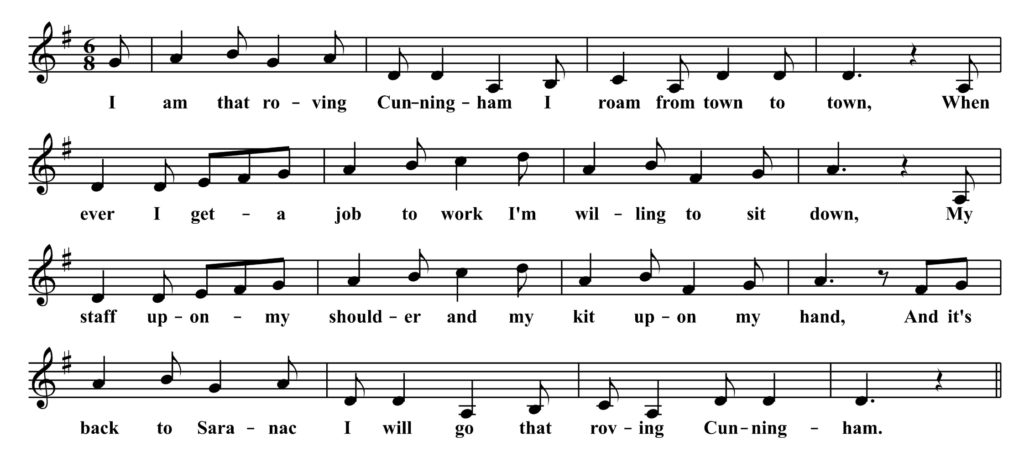Roving Cunningham

When I first came to Tupper Lake, the girls all jumped with joy,
Saying one unto the other, “Here comes that roving boy!”
One treats me to the bottle, and another to a dram,
And the toasts went round the table to “that healthy young Cunningham.”
Now, I hadn’t been in Tupper Lake a day not more than three,
When Tobin’s lovely daughter, she fell in love with me,
She said she wanted to marry me, and takes me by the hand,
And she slyly told her mother, she loved young Cunningham.
It’s “Hold your tongue, you silly fool! You grieve my heart full sore?
How could you love that little bum you’d never saw before?”
“Now, hold your tongue dear mother and it’s do the best you can,
For back to Saranac I will go with that roving Cunningham.”
I wrote about a Minnesota variant of this song, “The Roving Irishman,” in the August 2012 Northwoods Songs. Known in Ireland as “The Roving Journeyman” or “The Little Beggerman,” this version comes from northern New York State where it was sung by Ted Ashlaw. You can hear Robert Bethke’s recording of Ashlaw singing it here. Ashlaw learned it from the man who composed the variant: Charlie Cunningham. Cunningham reworked “The Roving Journeyman” to reference places in the northern Adirondacks he frequented and also to make some insinuations about his relationship with a local woman (“Tobin’s lovely daughter”).
I recently had the honor of writing the foreword for a wonderful new book by folklorist Robert Bethke about singer Ted Ashlaw and his songs entitled One Rough Life, Ted Ashlaw: Adirondack Lumber Camp and Barroom Singer. The book comes with a 2 CDs of Bethke’s field recordings of Ashlaw—a great resource for northwoods songs!


